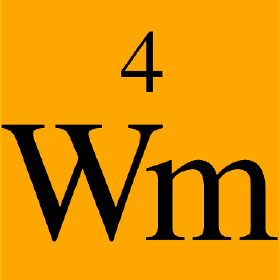Search results
-
IFB-ElixirFr/IFB-FAIR-data-training
Data management FAIR data Reproducibility
-
IFB-ElixirFr/IFB_Shiny_training
R script R Shiny
-
IFB-ElixirFr/IFB-FAIR-bioinfo-training
Data management FAIR data
-
ETBII 2023
-
IFB-ElixirFr/EBAII
ChIP-seq Sequencing RNA-Seq Variant pattern analysis R Unix/Linux Next generation sequencing RNA-seq Variant analysis
-
IFB Shiny training
•• intermediateR-programming Reproducible Science -
The IFB cloud for bioinformatics
Cloud computing Virtual machine -
thomasdenecker/FAIR_Bioinfo
Sequencing RNA-Seq Transcriptomics Containerization Snakemake General Reproducibility Next generation sequencing RNA-seq
-
Training materials
FAIR principles applied to bioinformatics
•• intermediateFAIR Reproducible Science Open science Data analysis Data processing -
Getting started with Bioschemas
• beginnerBioschemas Standards -
Webinar, Slides, Video
WheatIS DataDiscovery webinar
• beginnerData management wheat information system data discovery -
Training materials
Plant Phenotyping Data managment (MIAPPE)
• beginnerPhenomics Plant biology Data management Annotation Data formatting Plant Phenotyping Data-format data sharing -
Video, Slides
Plant Phenotyping Data managment Webinar (MIAPPE)
• beginnerPlant biology Phenomics Data quality management Data curation and archival Standardisation and normalisation -
Slides
FAIR data - Module 1 (research data)
• beginnermetadata Data Life Cycle Reproducibility Data management plan -
Slides
FAIR data - Module 2 (data life cycle)
• beginnerData management Biology Bioinformatics Data handling Data preserving Data storage -
Slides
FAIR data - Module 3 (Metadata)
• beginnerBioinformatics Biology Data management Data handling metadata data annotation life science standards data sharing -
Slides
FAIR data - Module 4 (share and publish data)
• beginnerBioinformatics Biology Data management data sharing Data publishing legal framework data warehouse licensing data reuse -
training material sed and awk training
•• intermediate -
Tutorial, Training materials, Bioinformatics
How to use REPET software for de novo annotation of transposable elements in genomes
• beginnerGenomics Structural variation Bioinformatics Genome annotation Sequence classification Transposons Annotation Pipelines Docker -
training RNASEQ Bioinfo part
•• intermediate -
Docker for Beginners
Docker -
Statistics with RStudio
R -
Docker Tutorial
Docker -
Chip-seq: Motif Analysis Tutorial
Chip-seq Motif analysis NGS Pattern recognition -
Chip Seq: Annotation and visualization Tutorial
Annotation Chip-seq Data Visualization NGS -
Chip Seq: Annotation and visualization Lesson
Annotation Chip-seq Data Visualization NGS -
Chip-seq: Peak calling tutorial
Chip-seq NGS Peak calling -
Chip-seq: Introduction to the Workshop
Chip-Seq -
Snakemake tutorial: Gene regulation
Gene regulation Snakemake -
Galaxy 101 for everyone
-
IFB French Institute of Bioinformatics
The French Institute of Bioinformatics (CNRS IFB) is a national service infrastructure in bioinformatics. IFB’s principal mission is to provide basic services and resources in bioinformatics for scientists and engineers working in the life sciences. IFB is the French node of the European research...
148 training materials5 events (500 past events)IFB French Institute of Bioinformatics http://www.france-bioinformatique.fr https://tess.elixir-europe.org/content_providers/ifb-french-institute-of-bioinformatics The French Institute of Bioinformatics (CNRS IFB) is a national service infrastructure in bioinformatics. IFB’s principal mission is to provide basic services and resources in bioinformatics for scientists and engineers working in the life sciences. IFB is the French node of the European research infrastructure, ELIXIR. /system/content_providers/images/000/000/049/original/logo-ifb-couleur.svg?1663599376 -

Workflow4metabolomics
In the context of collaboration between metabolomics (MetaboHUB French infrastructure) and bioinformatics platforms (IFB: Institut Français de Bioinformatique), we have developed full LC/MS, FIA-MS, GC/MS and NMR pipelines using Galaxy framework for data analysis including preprocessing,...
Workflow4metabolomics https://workflow4metabolomics.org https://tess.elixir-europe.org/content_providers/workflow4metaolomics In the context of collaboration between metabolomics (MetaboHUB French infrastructure) and bioinformatics platforms (IFB: Institut Français de Bioinformatique), we have developed full LC/MS, FIA-MS, GC/MS and NMR pipelines using Galaxy framework for data analysis including preprocessing, normalization, quality control, statistical analysis (Univariate, Multivariate PLS/OPLS) and annotation steps. Those modular and extensible workflows are composed with existing components (XCMS and CAMERA packages, etc.) but also a whole suite of complementary homemade tools. This implementation is accessible through a web interface, which guarantees the parameters completeness. The advanced features of Galaxy have made possible the integration of components from different sources and of different types. Thus, an extensible Virtual Research Environment (VRE) is offered to metabolomics communities (platforms, end users, etc.), and enables preconfigured workflows sharing for new users, but also experts in the field. /system/content_providers/images/000/000/659/original/17082156.png?1667905557
